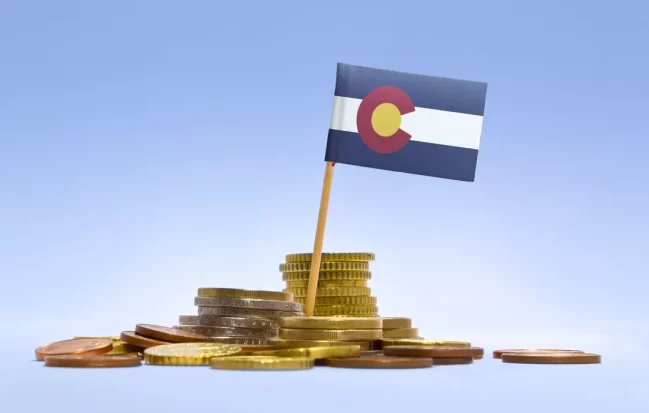
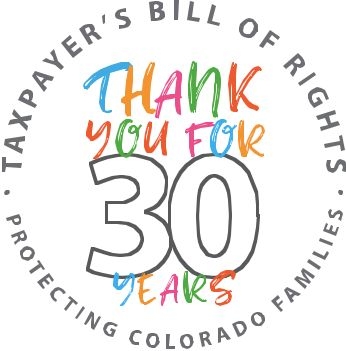
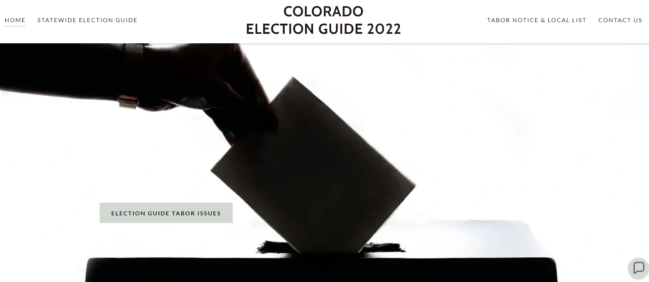
The column above provides how-to and then links to this website which has the local TABOR ballot issue list:
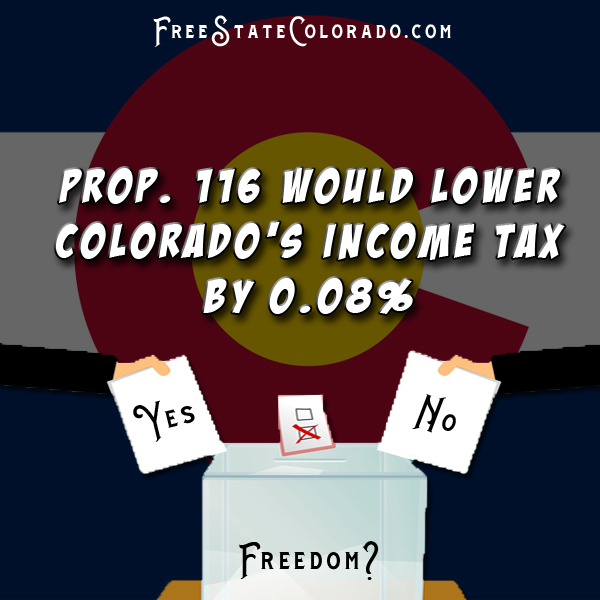
#DontBeFooled
#ItsYourMoneyNotTheirs
#VoteOnTaxesAndFees
#FeesAreTaxes
#TABOR
#ThankGodForTABOR
#FollowTheMoney
#FollowTheLaw
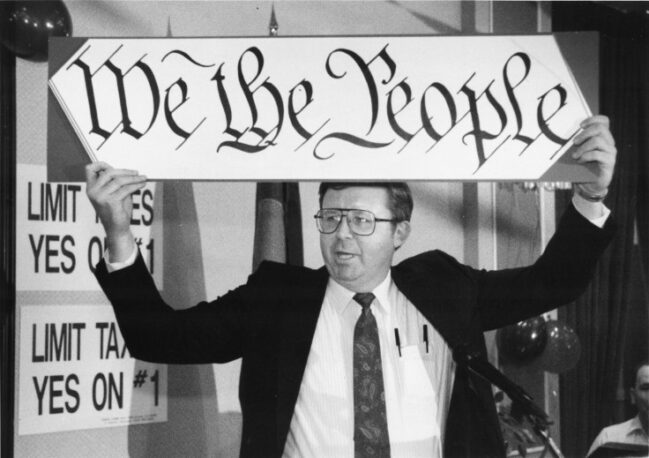
#DontBeFooled
#ItsYourMoneyNotTheirs
#VoteOnTaxesAndFees
#FeesAreTaxes
#TABOR
#ThankGodForTABOR
#FollowTheMoney
#FollowTheLaw
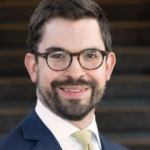
Ben Murrey
Thanks to the Taxpayer’s Bill of Rights, commonly known as “TABOR,” Coloradans will receive nearly $4 billion in excess revenue refunded from the state this year. That’s where those $750 checks for individuals and $1,500 for couples came from over the summer. On the ballot this year, Proposition 123 is asking voters to give up their refunds, at least in part.
If adopted by voters, the measure would reduce TABOR refunds by about $86 per person, based on information from the state voter booklet or “Blue Book.”
The measure dedicates up to 0.1% of income tax revenue to affordable housing programs administered by state bureaucracies. For years in which the state has a TABOR surplus, that would reduce TABOR refunds by about $300 million. State economists currently project refunds for at least the next three years.
Even Democrats — who rarely refuse the opportunity to spend more of your money on new government programs — have been skeptical of the measure.
Democratic state Sen. Chris Hansen, of Denver, expressed concern that Proposition 123 could eat directly into the state’s ability to spend on other priorities.
“There’s no free lunch,” Hansen said referencing the measure. “K-12 and higher education (is) where the marginal dollar is in our state budget. So $1 less means $1 less for education.”
The statement proves a bit disingenuous, but the senator is right to say there is no such thing as a free lunch. Continue reading
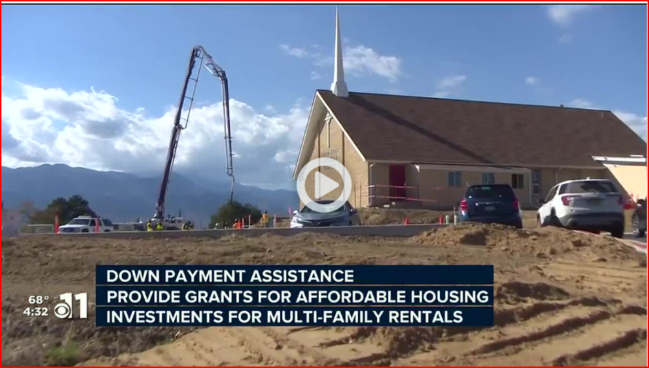
11 News spoke with supporters and opponents of CO Proposition 123 Thursday about their goals and worries.
Published: Oct. 6, 2022 at 8:36 PM EDT
COLORADO SPRINGS, Colo. (KKTV) -Supporters of Colorado Proposition 123 met in Colorado Springs Thursday morning to discuss their hopes and goals for the ballot item, which will appear statewide on Election Day.
If passed, Proposition 123 would dedicate 0.1% of the state budget to help fund affordable housing programs.
That comes out to almost $300 million, and that money would be going to programs designed to create rental units with a cap of 30% of a renter’s income, provide down payment assistance for qualifying individuals, and give grants to local governments for affordable housing development, among other things. Click here to visit Colorado’s “Blue Book” guide with an in-depth look at Proposition 123 on page 30.
Supporters said the proposition will allow people in lower-paying crucial careers, like education and nursing, to be able to afford to live in the communities they work in. Continue reading
FYI. This was on Twitter yesterday:
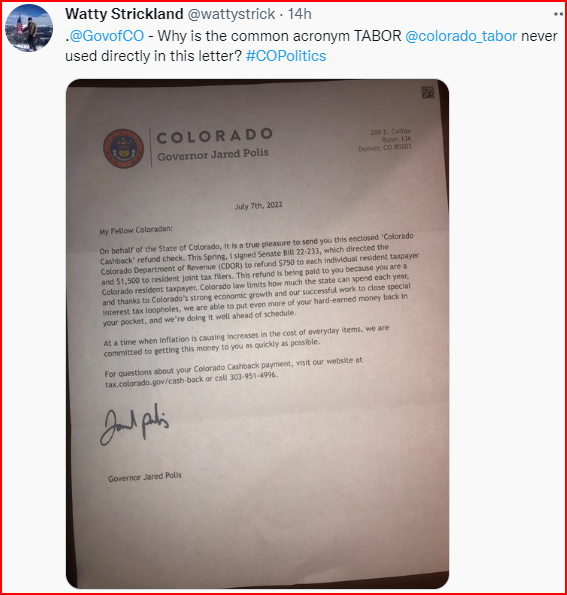
BoulderGuyTC@BoulderGuyTC
Replying to @wattystrick @GovofCO and @colorado_tabor
One great, though lesser-known benefit provided in the Colorado Taxpayer’s Bill of Rights (TABOR) is the local ballot issue notice. This guide is sent by mail at least 30-days before the election to all households with one or more registered voters.
The ballot issue notice includes content and details about upcoming local ballot measures that increase taxes, add debt, or suspend TABOR revenue limits. It includes a section where registered voters have the opportunity to submit FOR or AGAINST comments, up to 500 words each.
You should know that there are two types of TABOR ballot issue notices. One notice is for the statewide elections and commonly referred to as the “Blue Book.” The notice discussed here is for elections held by local governments such as a city, town, school district, or special taxing district. You could potentially get more than one of these notices in the mail.
Several years back, it was discovered that out that of some 300 local tax issues throughout the state during a ballot year, only 15 had the taxpayer’s voice printed in a ballot issue notice. That’s only 5 percent! You can make a big difference and amplify your voice by being an author of the next ballot issue notice where you live. Considering that you reach thousands of voters, being able to submit comments in the TABOR notice costs almost nothing and takes relatively little time and energy.
What follows is an explanation of how to participate in the local ballot issue FOR or AGAINST comment process. As in so much of government bureaucracy, instructions must be followed with no room for alteration. The deadline for this year is Friday, September 23 no later than noon to have your comments included in the local TABOR notice.
To continue reading this story at Complete Colorado, please click (HERE):
#DontBeFooled
#ItsYourMoneyNotTheirs
#ThankGodForTABOR
#VoteOnTaxesAndFees
#FeesAreTaxes
#TABOR
#FollowTheMoney
#FollowTheLaw
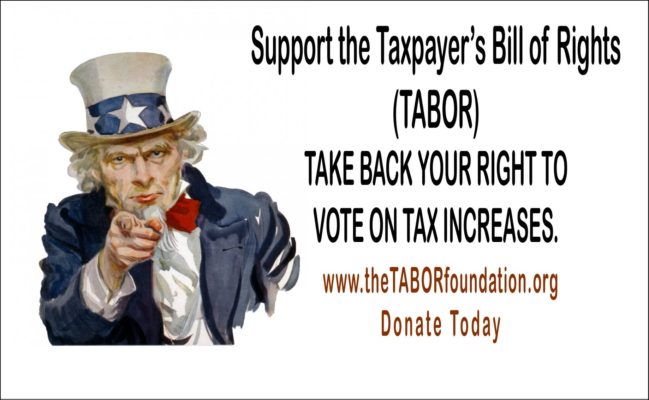
September 8, 2022 By Sherrie Peif
LAKEWOOD — A Colorado State Senate candidate has added her name to a long list of Democrats trying to take credit for this year’s Taxpayer’s Bill of Rights (TABOR) refunds, despite a history of trying to eliminate the constitutionally required return of overcollected tax revenue.
Lisa Cutter, who until this year has represented House District 25 and served as the House Majority Caucus Co-Chair, is featured in a social media ad telling voters she was responsible for the refund checks that recently went out to Coloradans, that are actually the result of TABOR, an amendment to the Colorado Constitution that limits the state from raising taxes or exceeding a revenue limit on a portion of the state budget without first asking voters. The ad, which links back to Cutter’s campaign website, makes no mention of TABOR, instead claiming she “Delivered Colorado’s biggest tax relief checks ever.” Continue reading